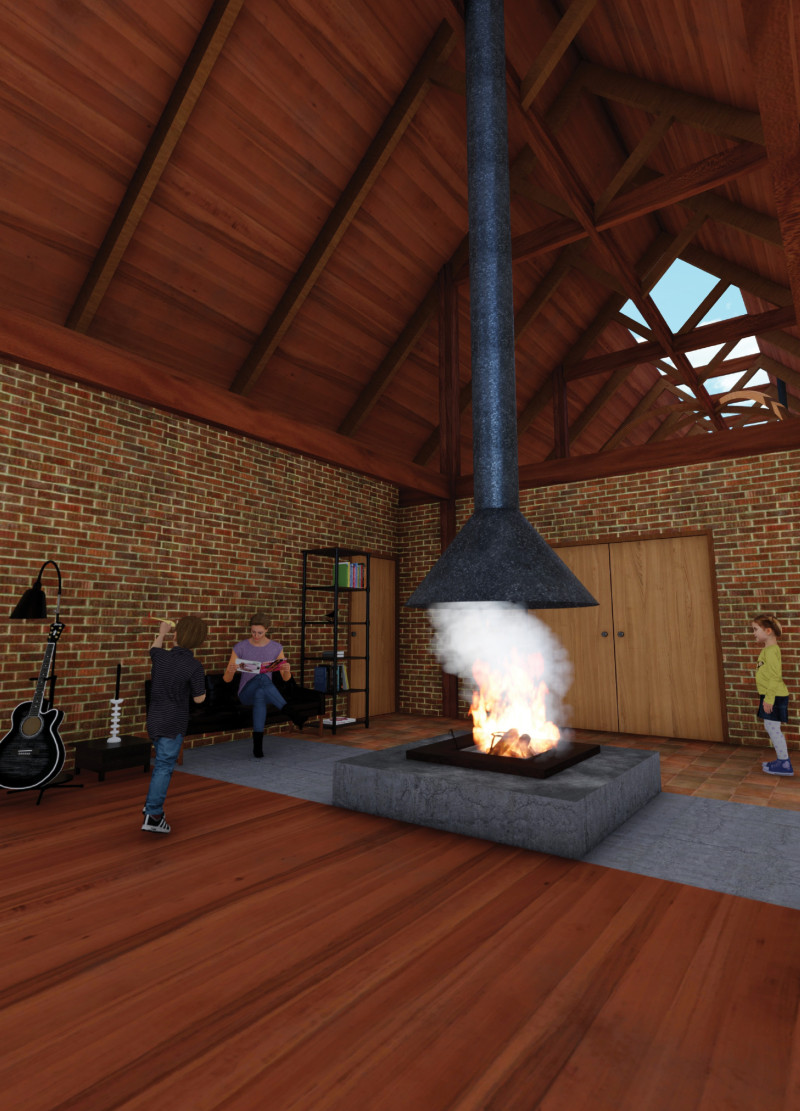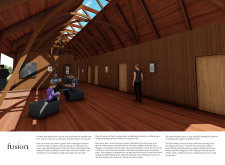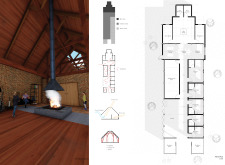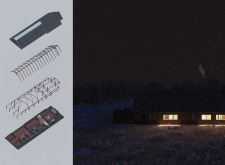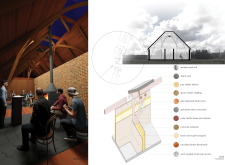5 key facts about this project
The Pavilosta poet huts are located in Latvia, designed as a retreat for travelers looking to escape from busy city life. The design reflects a connection to traditional Latvian styles while also meeting the needs of modern visitors. The emphasis is on community, allowing guests to connect with one another while also having spaces to focus on their own thoughts and creativity.
Traditional Design Elements
The huts feature thatched roofs, which pay tribute to local building practices. This choice not only adds to the charm of the huts but also serves a practical purpose. The roofs help keep the interiors warm, making the living spaces comfortable throughout the year. The use of local materials highlights a commitment to sustainability and cultural relevance.
Spatial Configuration
Inside, the layout is defined by a cross-braced arch system. This design choice allows for open spaces without columns, facilitating easy movement and interaction. Sunlight streams in through a central glass void, lighting up the living areas. Even during dark winter days, the spaces feel bright and welcoming.
Versatile Communal Areas
The project includes communal spaces, such as a terrace that can serve multiple purposes. With moveable folding doors, the terrace can be enclosed, providing shelter for gatherings during colder times. A fireplace made from heat-retaining bricks adds warmth and acts as a focal point for social connection in shared spaces.
Self-Contained Accommodations
Each poet hut is equipped with the necessary amenities for a comfortable stay. Features include beds, desks, kitchenettes, washing facilities, and storage. These individual huts cater to the needs of guests while allowing for personal time. The shared kitchen and dining area foster collaboration and community among visitors, enhancing the overall experience.
The Pavilosta poet huts illustrate a thoughtful approach to design. By combining traditional styles with modern functionality, they create an environment where community living and personal retreat coexist. The attention to both social spaces and private accommodations supports the creative process, making the site a unique destination for poets and writers.


